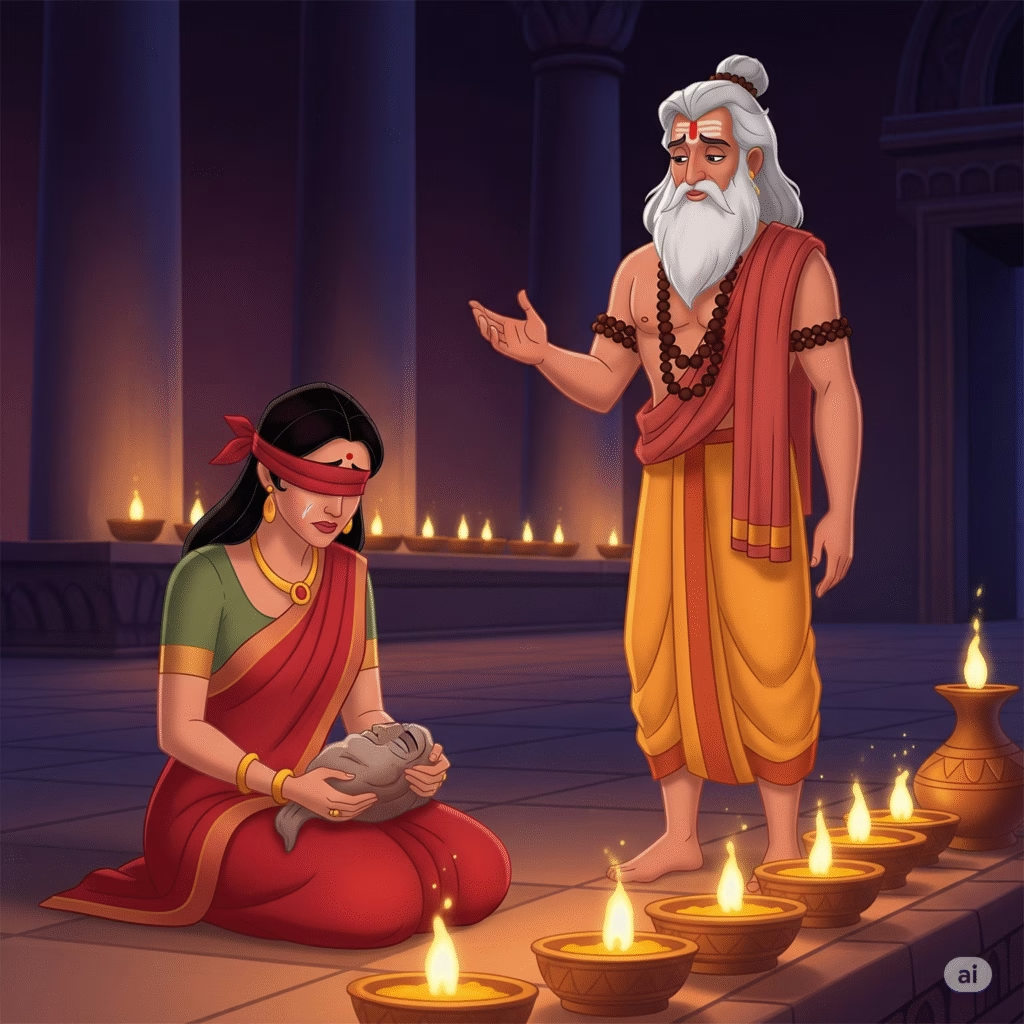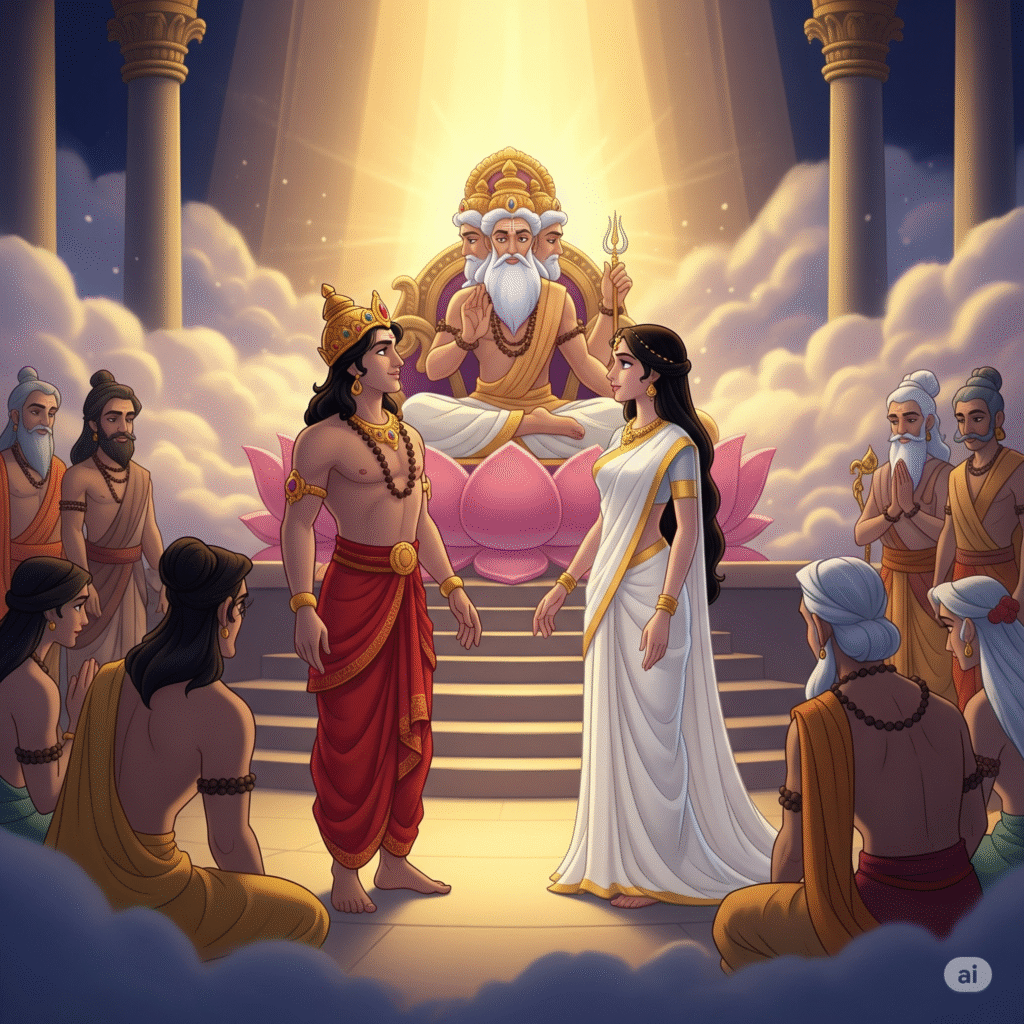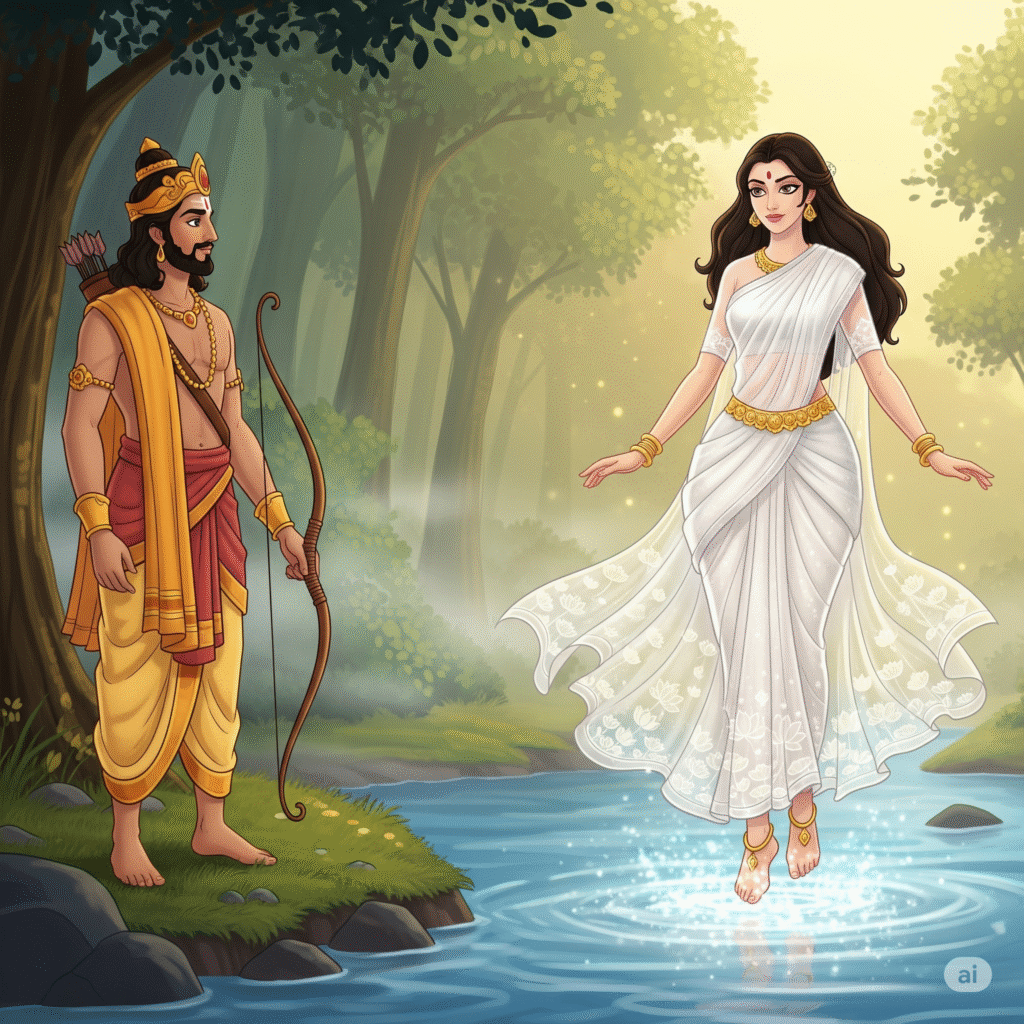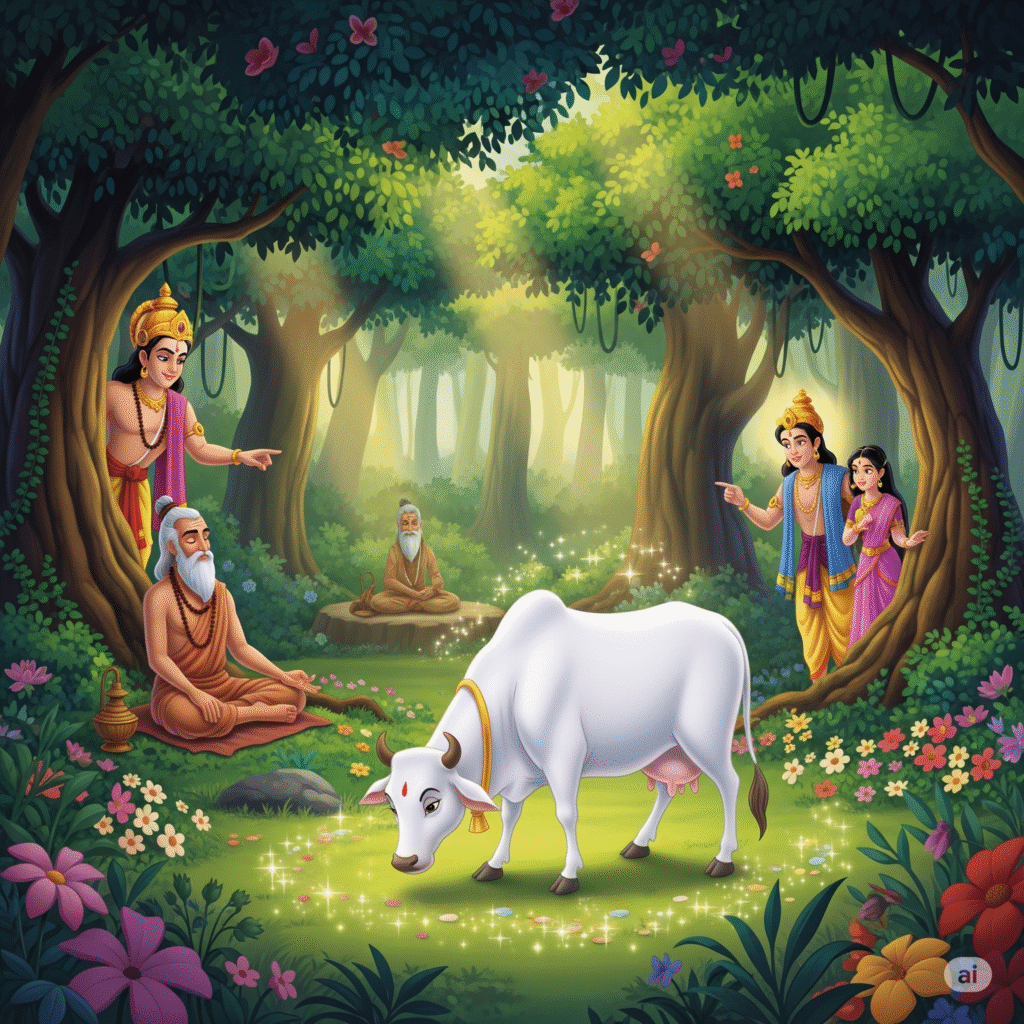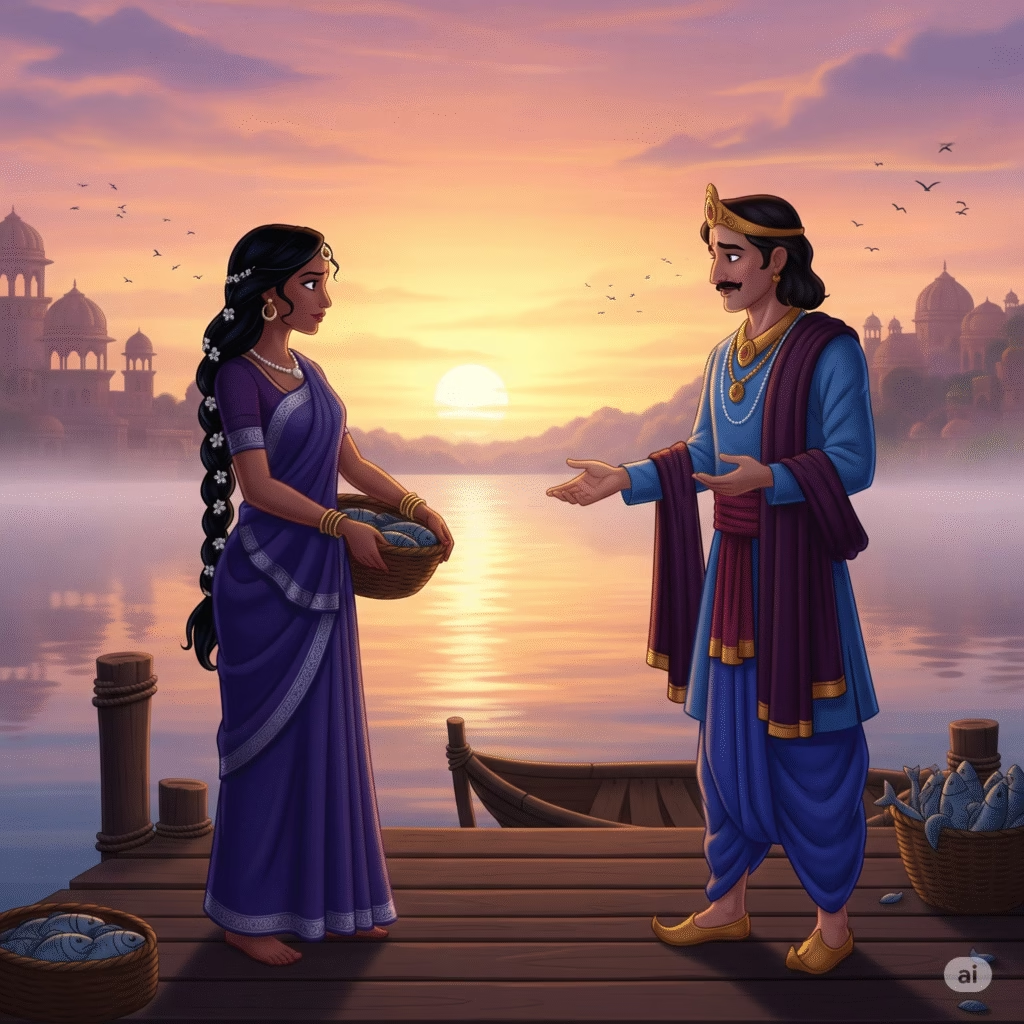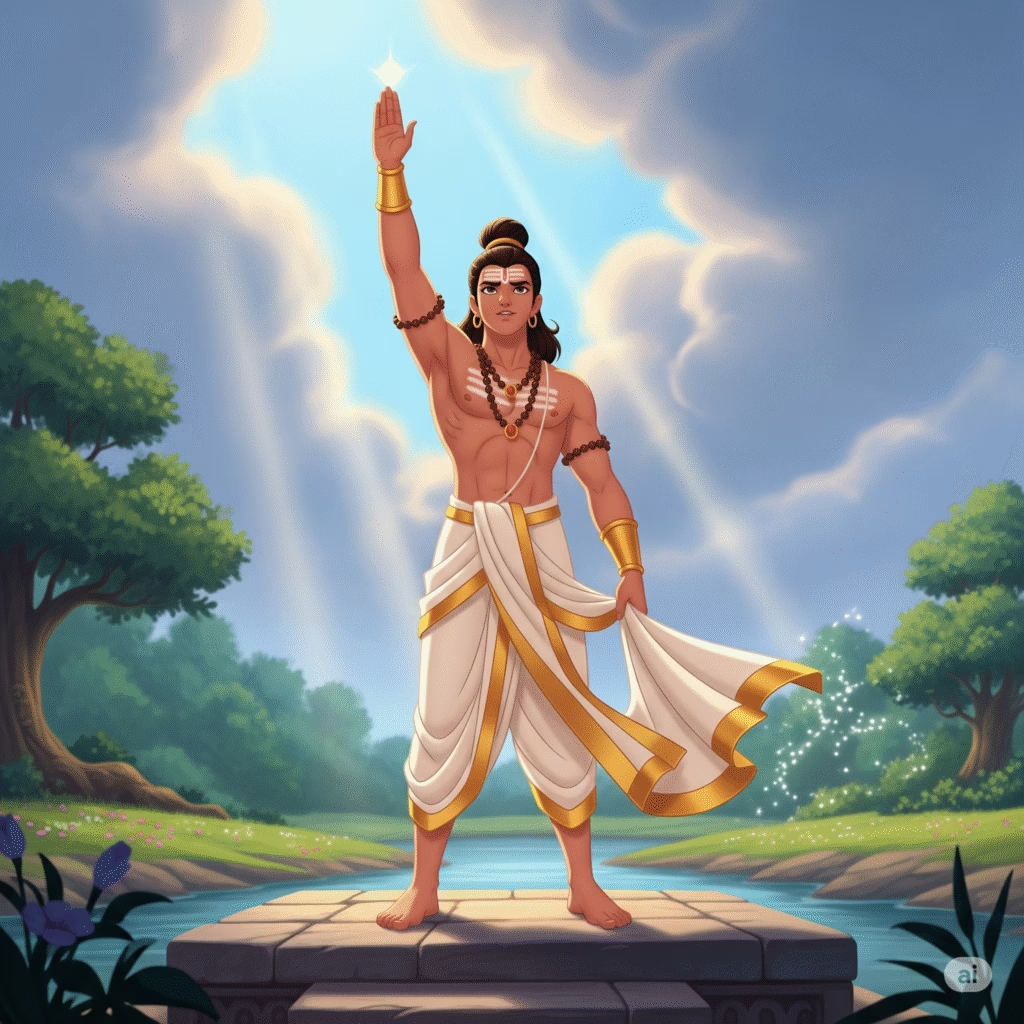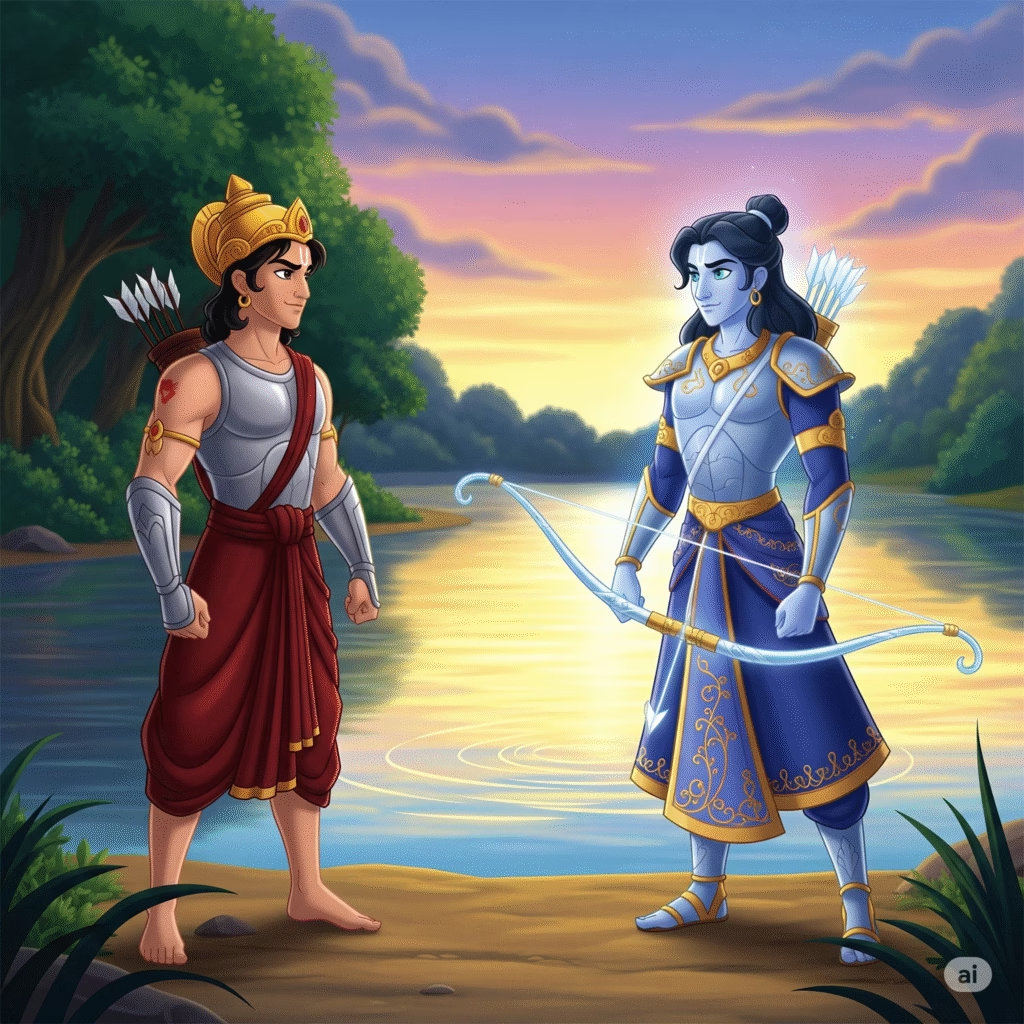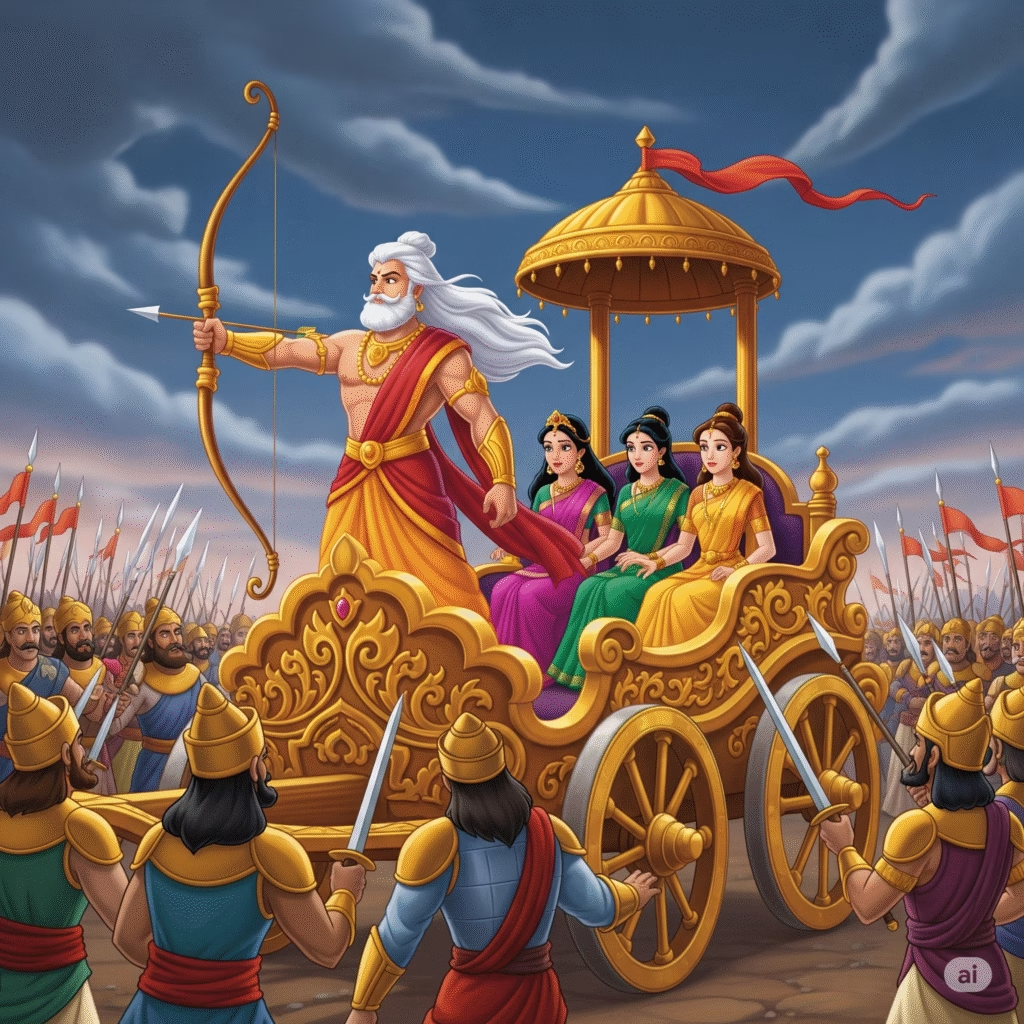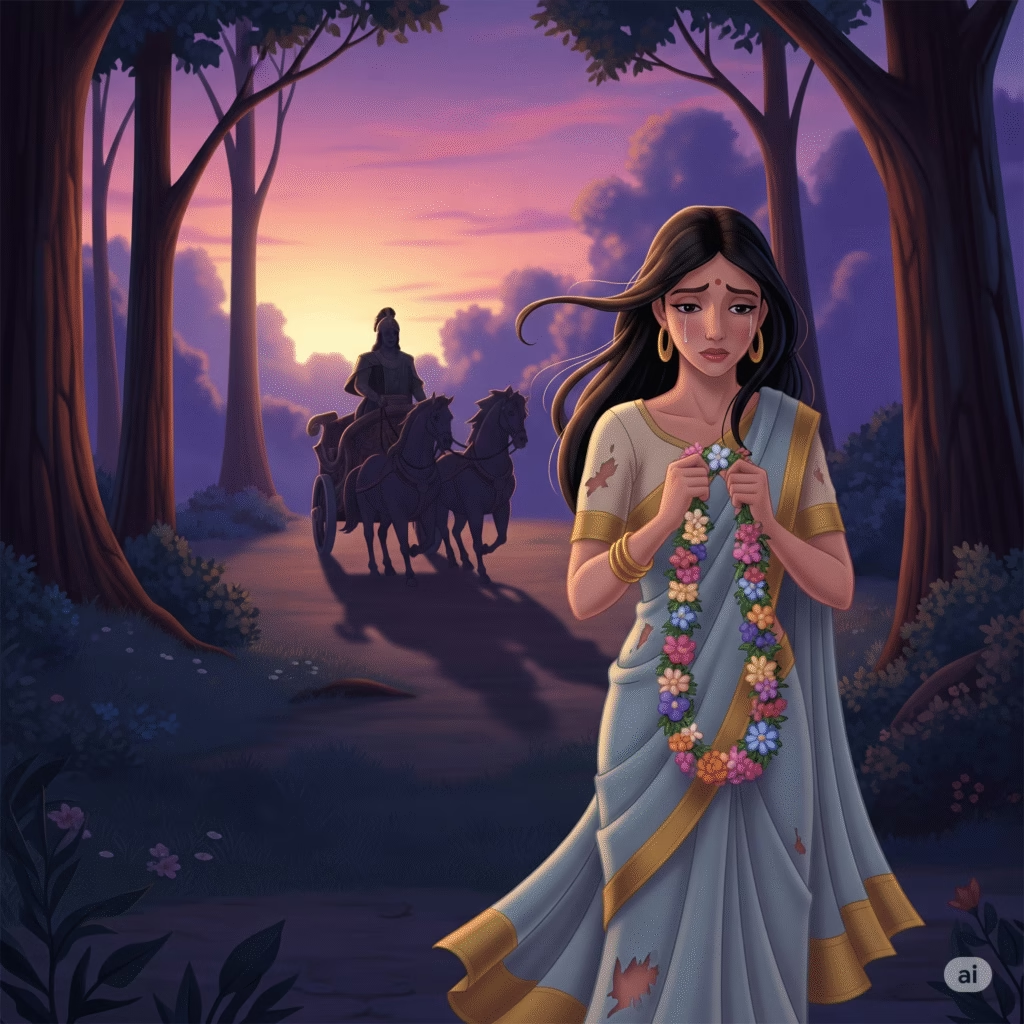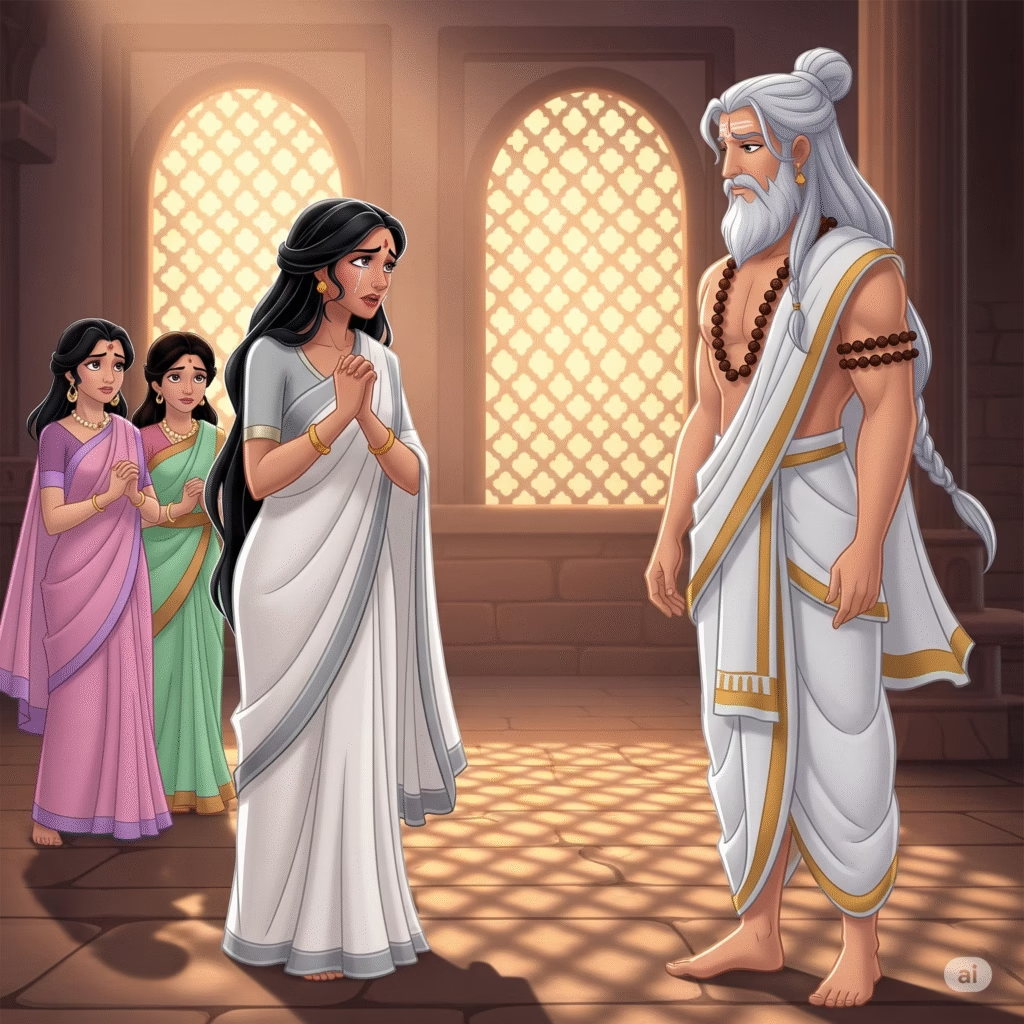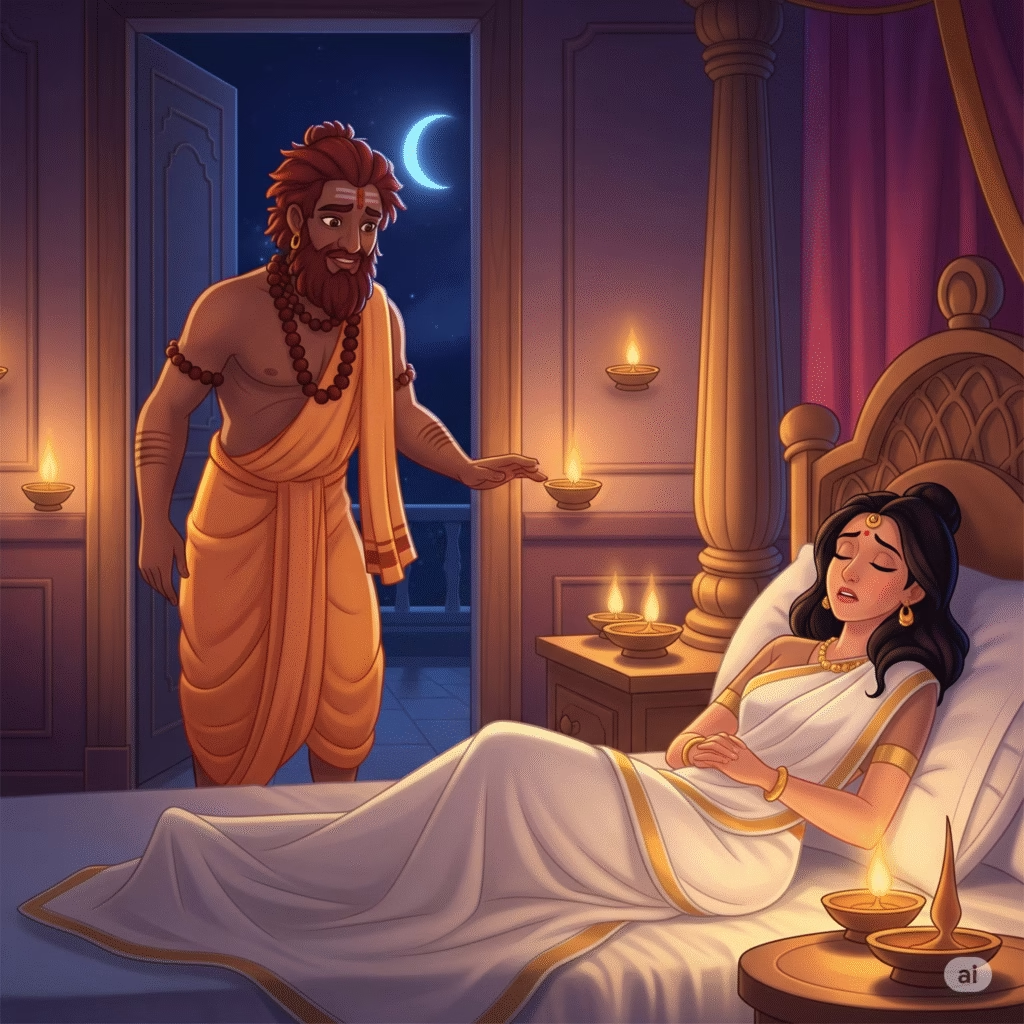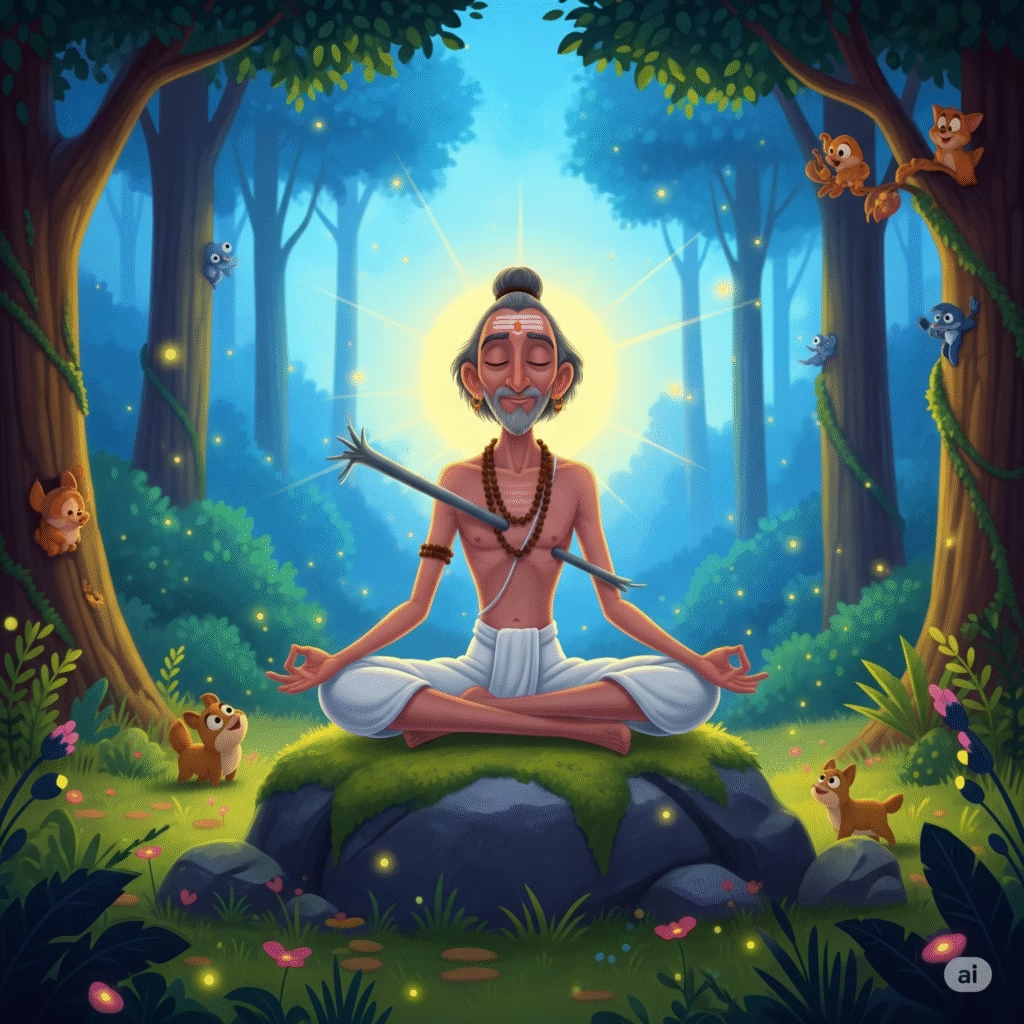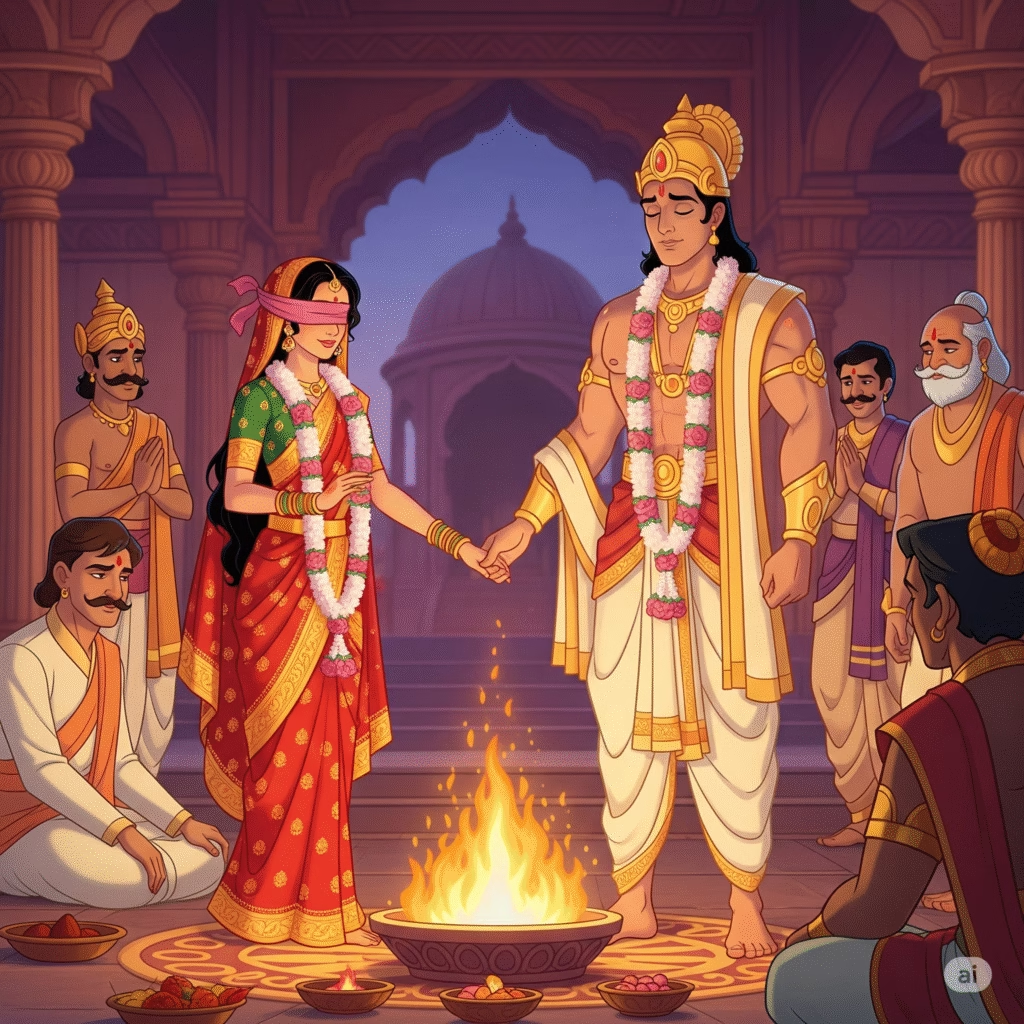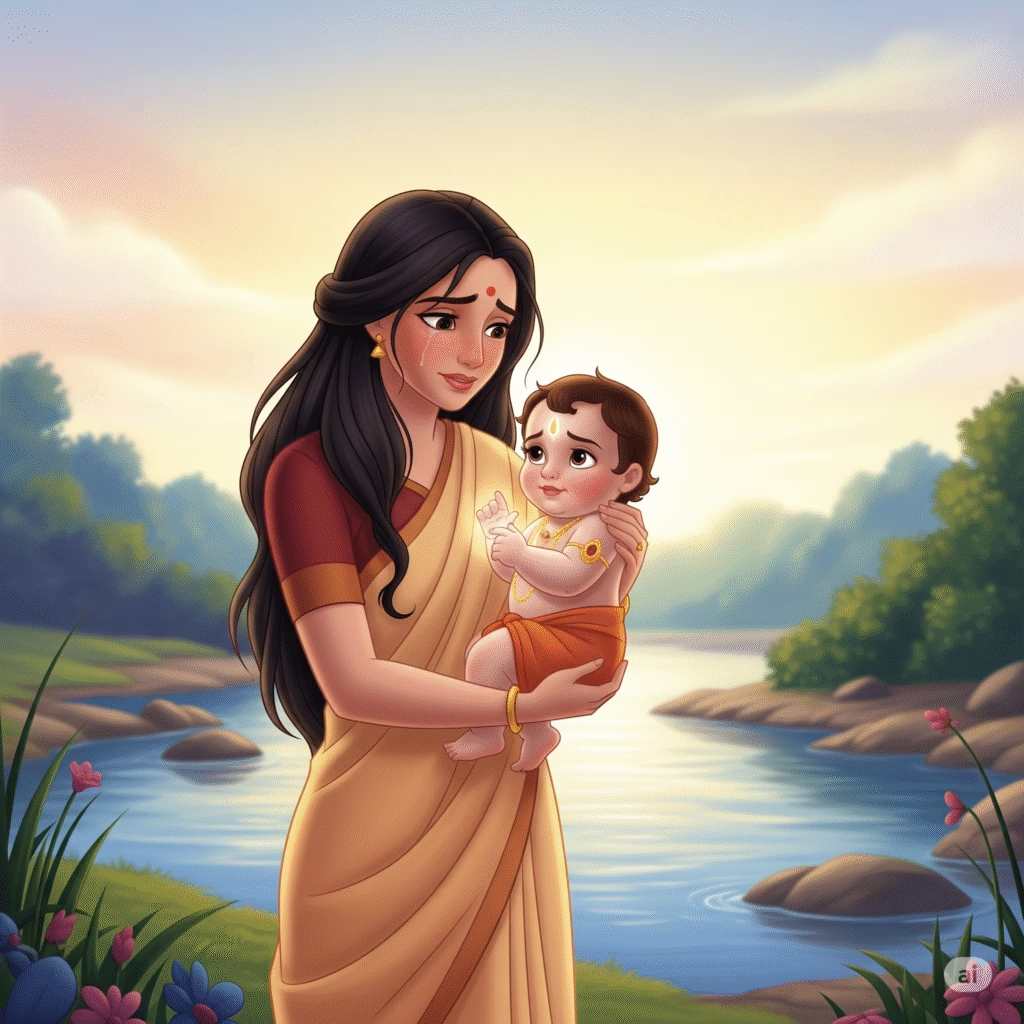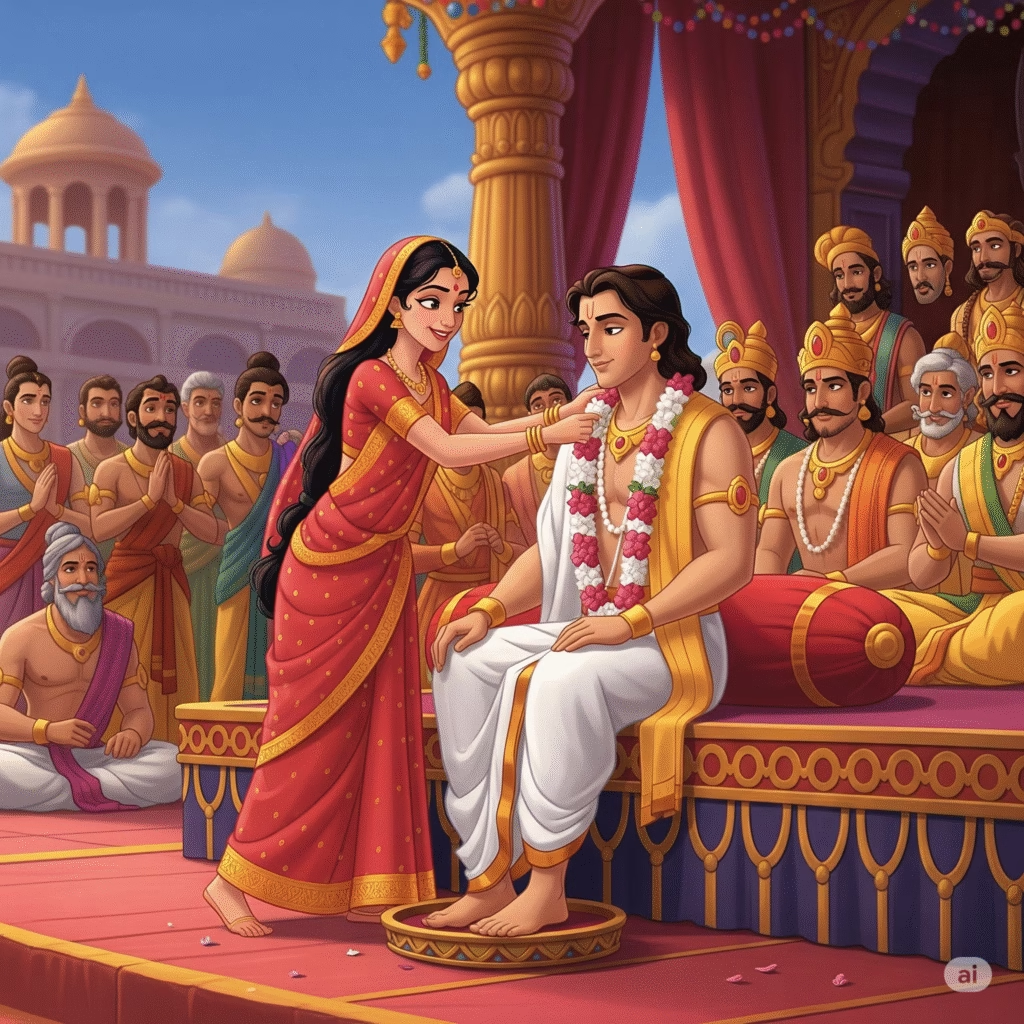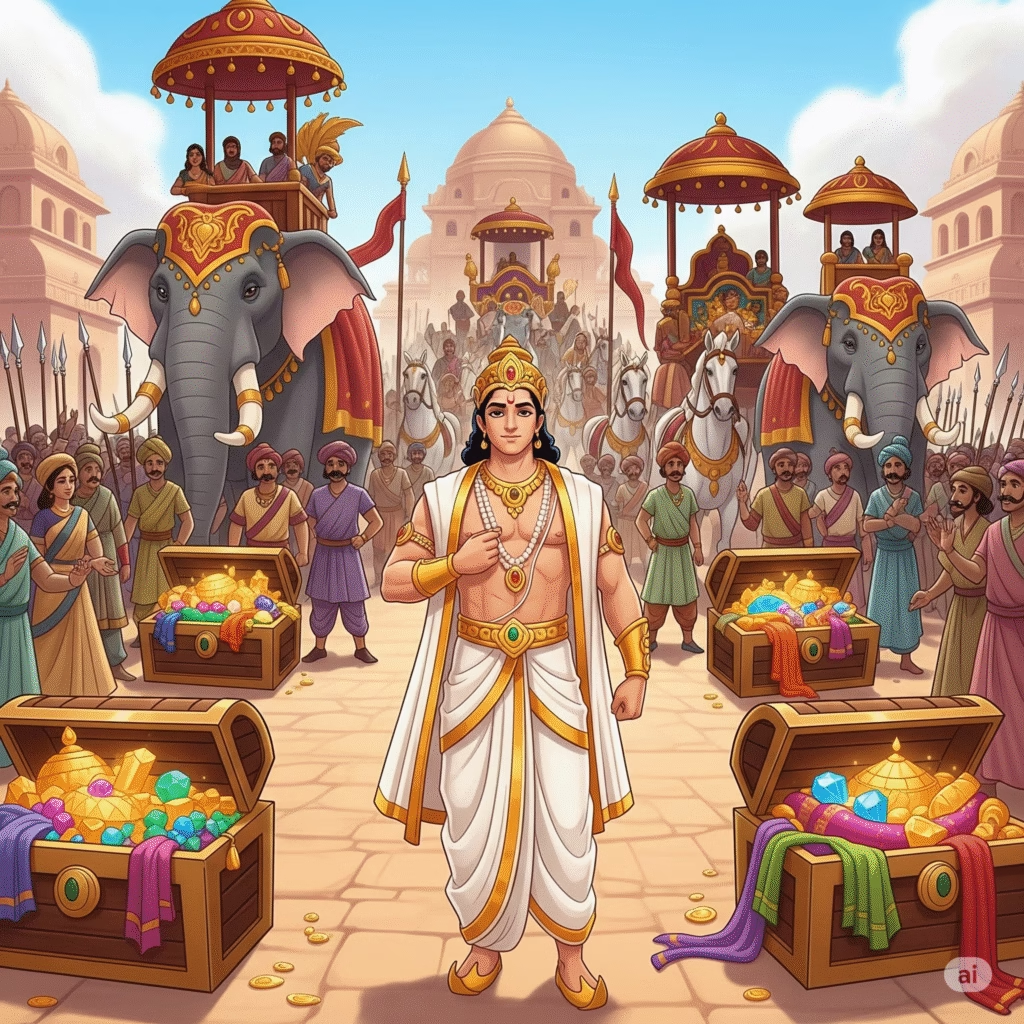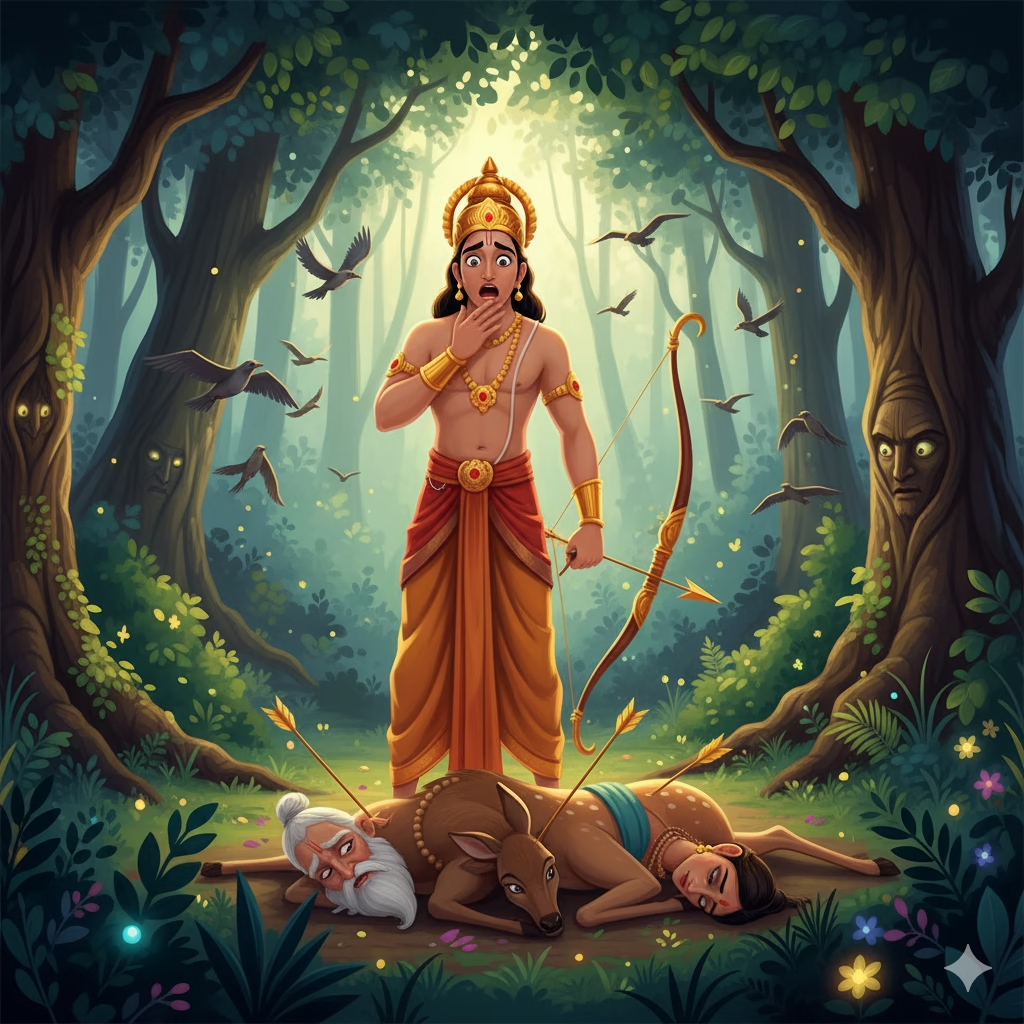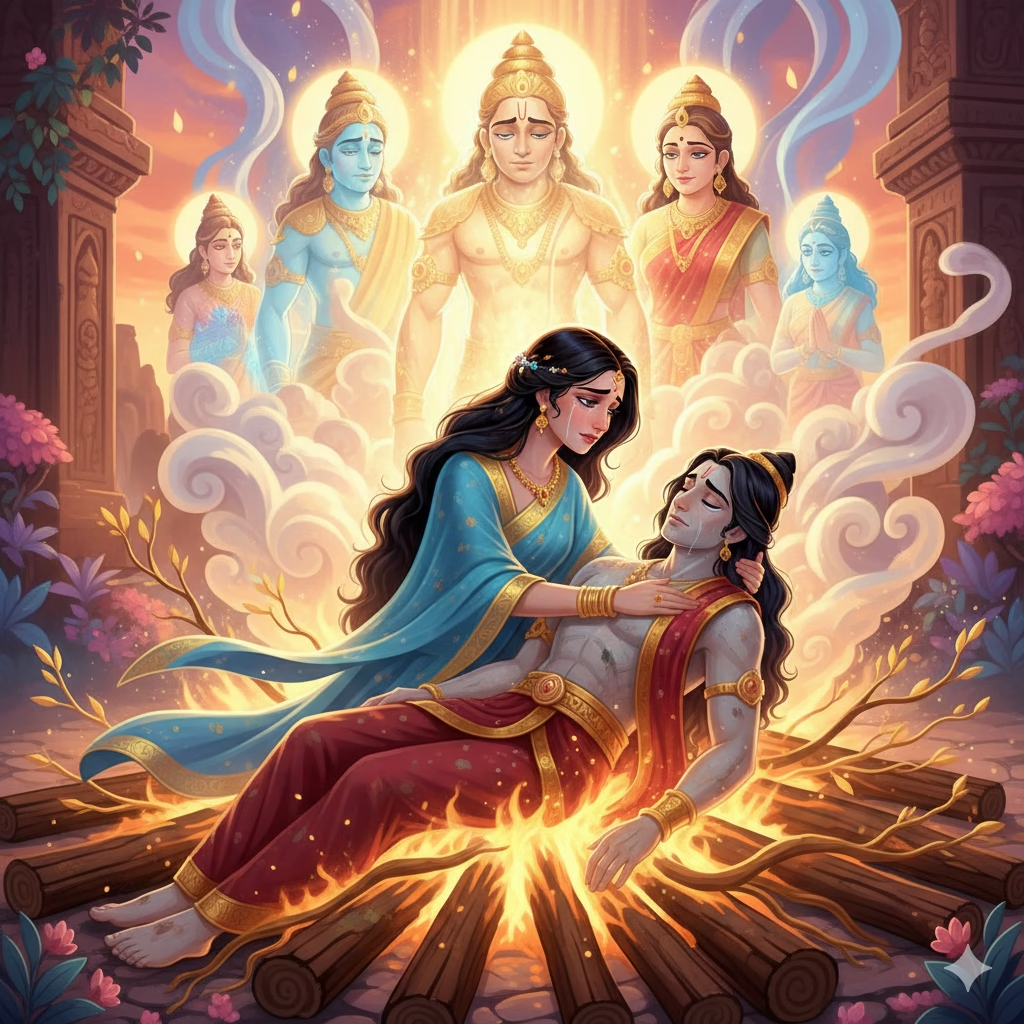Once, the sage Vyasa visited Hastinapura, tired, hungry, and weary. Gandhari, the dutiful queen, welcomed him with warmth, food, and rest. Touched by her devotion, Vyasa blessed her: “You shall bear a hundred sons, O noble daughter of Subala!” Soon after, she conceived. A hundred heirs. A future for the Kuru throne. A dream was planted in her body. And then… she waited. One year. Two years. But nothing stirred. No movement. No life. Only silence. A growing, wordless weight. Then came the news. Kunti, wife of Pandu, had given birth to a son. A boy so resplendent that they compared him to the rising sun. Gandhari was devastated. Her patience—noble until now—suddenly felt like mockery. Her womb, once sacred, now felt barren. Dead. Defeated. And in a moment of despair—burning with grief, anger, and helplessness—she struck her belly. What emerged was not a child. It was a mass. A lump of flesh. Hard as iron. For two years, she had nurtured a lifeless weight. And now, holding it in her trembling hands, she wanted to throw it away. But destiny had other plans.
Vyasa returned the moment he heard. He saw the mass of flesh and asked her gently, “What do you intend to do with this?” Gandhari confessed everything. Her despair. Her envy. Her broken heart. Vyasa did not scold her. He said, “This too is part of the blessing. It is not the end—only a strange beginning.” He divided the mass into a hundred equal pieces and placed each in a pot filled with ghee. He added one more—for the daughter who would be born among them—because he sensed that Gandhari secretly wished for a daughter as well. And then he said, “In time, from each pot will emerge a child. But you must wait a little longer.”
Gandhari’s silent wait transformed. It now had shape. The hundred pots rested, each holding a fragment of her once broken hope. Days turned into months. The palace held its breath till one day, the first cry pierced the stillness of Hastinapura. A boy was born. He was strong. Loud. And yet… something felt strange. The moment his cry filled the air, the palace dogs began to howl. The horses neighed in panic. Donkeys screamed. Vultures circled in the sky. And even as Gandhari held her son, somewhere in the forest, Kunti gave birth to Bhima—the second of the Pandava brothers. The timing was almost simultaneous. Two sons, born under the same sun but destined to be fire and storm.
Dhritarashtra was overjoyed. For the first time, he held his son in his arms—a rightful heir. A piece of him. But before that joy could settle, ominous whispers began. The palace priests were disturbed. The howling of beasts, the dark winds, the flickering of sacred fires—everything pointed towards disaster. The wise minister Vidura, always calm, said softly, “O King, abandon this child. He carries the seed of destruction. If you do not let him go now, he will consume the very roots of the Kuru dynasty.” A terrible silence followed. Dhritarashtra froze. Could a father abandon his firstborn? Could wisdom silence love? And can destiny ever be denied? He did not abandon Duryodhana. He chose blood over counsel. And in that moment, the fate of Kurukshetra was sealed.
From Dhritarashtra’s relationship with a vaishya, during Gandhari’s pregnancy, a son was born—Yuyutsu. He was older than the other Kauravas but younger than Duryodhan. His birth wasn’t wrapped in rituals or grand omens. There were no drums, no festivals. Just a quiet arrival into a royal palace that never truly embraced him. Yet fate had its plans. He would grow into a man of sharp judgment, loyal to truth, and unafraid to stand against his own brothers. On the battlefield of Kurukshetra, he would be the lone Kaurava to switch sides—choosing dharma over blood.Yuyutsu was the forgotten son of a blind king—yet one of the only Kauravas who saw things clearly.
We live in a world obsessed with instant outcomes. We compare timelines. We measure worth by speed. We panic when someone else arrives at their joy before us. But Gandhari’s story reminds us that not all gifts come in the form we expect, nor at the time we desire. Sometimes what looks like a delay is just nature’s way of doing things differently. Sometimes our deepest despair births something unimagined—if only we stay, and stay still, just a little longer. Also, we all face moments like Dhritarashtra’s. When wisdom says one thing, but attachment pulls us another way. Sometimes, the very thing we’ve longed for arrives with signs we don’t want to see.
Journaling Prompts
- Have you ever felt like your efforts were fruitless just because results were delayed? How do you respond when others seem to be achieving things faster than you?
- In what area of life do you need to replace despair with patience? Can you think of a moment when a perceived failure led to an unexpected form of success?
- Have you ever chosen love or attachment over your better judgment? What followed? Are there people or outcomes in your life that came with early signs, but you ignored them?
- How do you balance intuition with evidence? Feeling with warning? If destiny offered a chance to rewrite one moment of attachment in your life, what would it be?

